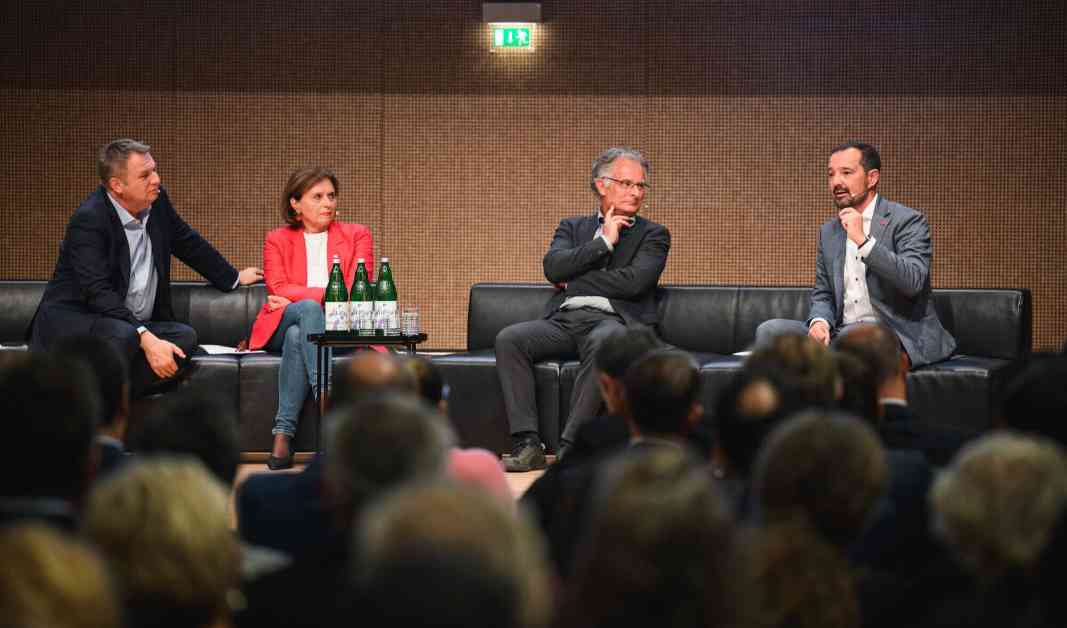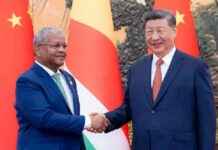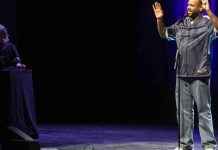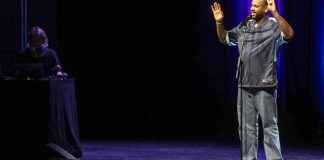Challenges in the Current Economic Landscape
In a recent discussion at the Tiroler Adler Forum, Tourism Secretary Susanne Kraus-Winkler, economist Markus Marterbauer, and politician Gerald Loacker delved into the pressing issues surrounding the economy. The assessments varied among the experts, with some highlighting concerns about the burning challenges facing the nation.
Christian Handl, President of the Tiroler Adlerrunde, emphasized the urgency of the situation by stating, “We believe that the cart is on fire.” Factors such as declining industrial production and rising unemployment rates were cited as indicators of the economic turmoil. To address these critical issues, Kraus-Winkler, Marterbauer, and Loacker focused on the pivotal topics of labor shortages, work ethic, and the prevalence of part-time employment.
The Struggle for Adequate Workforce
Susanne Kraus-Winkler underscored the significant challenges the labor market faces, particularly in the tourism sector. She highlighted the increasing demand for employees in tourism and outlined strategies to attract foreign workers through expedited work permits. Kraus-Winkler emphasized the importance of guiding individuals through effective labor market policies to address the workforce shortage. On the other hand, economist Markus Marterbauer acknowledged the presence of both exemplary and subpar businesses in the tourism industry. He highlighted the need to support well-performing enterprises while also advocating for enhancing the quality of work in the sector. Marterbauer recognized the labor shortage as an opportunity for growth, drawing parallels with the economic boom of the 1970s.
Tackling High Unemployment Rates
NEOS politician Gerald Loacker identified high unemployment rates as a critical issue in the current economic landscape. He proposed adopting models from Denmark and Sweden, where unemployment insurance is voluntary and widely utilized. Kraus-Winkler echoed concerns about certain individuals’ unemployability in the tourism sector, emphasizing the prevalence of low-skilled workers. In contrast, Marterbauer suggested implementing job guarantees in municipal and nonprofit sectors for long-term unemployed individuals as a more effective solution than degressive unemployment benefits.
Navigating Part-Time Work Dynamics
The debate on part-time work stirred emotional discussions, with Loacker highlighting disparities in benefits for part-time employees, particularly in healthcare coverage. He advocated for parity between full-time and part-time workers to ensure fairness. Loacker also critiqued Austria’s high labor costs, attributing them to extensive social programs such as early retirement and educational leave. Kraus-Winkler proposed enhancing childcare services to encourage more women to opt for full-time employment and suggested making full-time work more tax-efficient. Marterbauer endorsed a shift towards equitable distribution of care work and supported a 32-hour workweek, citing the desire of young fathers to spend more time with their children.
Despite their differing viewpoints, the consensus among the experts is that the economy is facing significant challenges that demand immediate action. Kraus-Winkler, Marterbauer, and Loacker agree that tangible measures are essential to navigate the complexities of the current economic landscape.
Expert Recommendations for Economic Reform
The experts shared their wishlists for addressing the economic issues at hand:
– Susanne Kraus-Winkler advocated for reducing bureaucracy and promoting flexibility in business operations, along with implementing alternative tax systems to support sustainable economic growth.
– Markus Marterbauer called for substantial investments in the education system, especially for marginalized groups like migrants, to ensure equal opportunities for all children.
– Gerald Loacker proposed revising the federal system to allow each jurisdiction to collect and allocate taxes independently, promoting more efficient fiscal governance.









![Indie music fans gather at l’Antipode for [Face B] Kool Things soirée on Saturday night news-15112024-105933](https://shanghainewstv.com/wp-content/uploads/2024/11/news-15112024-105933-218x150.jpg)







